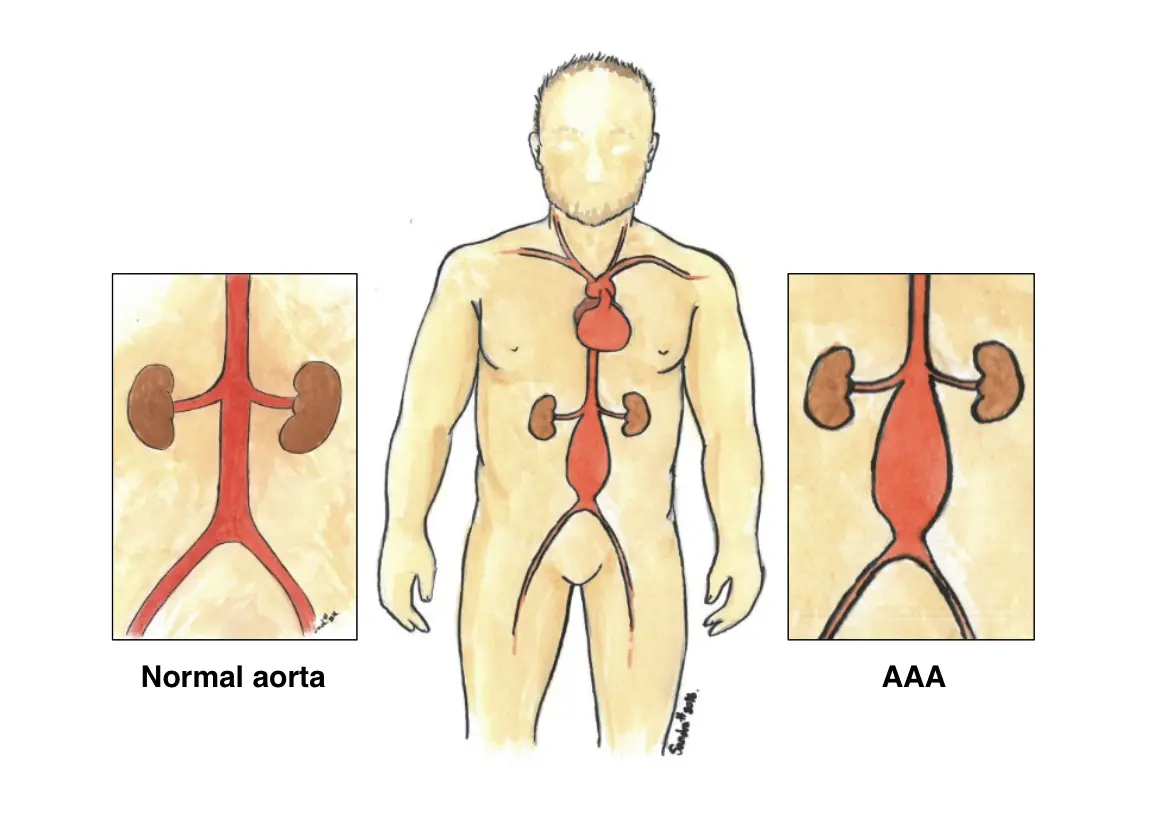Abdominal Aorta Aneurism (AAA)
Abdominal Aorta Aneurism is a cardiovascular disease with ‘balooning’ of the lower part of the main artery of the body, aorta.
The cause is unknown, but risk factors are atherosclerosis, high blood pressure, cardiovascular inflammation and infection as well as trauma. It affects millions of people globally and accounts for the death of 1% of men over the age of 65. It develops gradually over several years up to a dilatation of more than 3mm in diameter when surgery to insert a stent to prevent rupture is then the only treatment option, both expensive and with complications. Currently no preventive treatment is available.
On 26 November 2023, Pila Pharma AB entered a research collaboration with the Research Group of Professor Dick Wågsäter, Uppsala University, Sweden (the “Research Group”) on investigating the effect of XEN-D0501 on Abdominal Aorta Aneurism growth in mice.
The hypothesis is that XEN-D0501 may reduce the chronic inflammation that leads to cardiovascular disease including aorta dilatation. Thus, XEN-D0501 could potentially prevent the lethal end-stage development of Abdominal Aorta Aneurism.
This collaboration will cover a small study in mice that the Research Group will sponsor whilst Pila Pharma sponsors XEN-D0501. The results will be split in that the Research Group gets the publication right (after patenting) and Dick Wågsäter has agreed to transfer to Pila Pharma the patent rights against that Pila Pharma sponsors any resulting patents.
The aim of this new collaboration is to establish a pre-clinical proof-of-concept of an effect of XEN-D0501 on preventing progression of Abdominal Aorta Dilatation in mice.
If the results of this mouse study will be positive, further clinical development plans for the assessment of XEN-D0501 in humans with Abdominal Aorta Aneurism have already been discussed to further pave the way for XEN-D0501 as the missing preventive treatment.
CEO Dorte X. Gram comments:
We’re currently developing XEN-D0501 as an affordable treatment of diabetes and obesity with multiple beneficial effects including the reduction of cardiovascular disease risk.
Our own clinical results on the latter will not be available for long, so I welcome this mouse study as it might provide data on a cardiovascular function effect of XEN-D0501.
More-over, I have recently experienced the disease of Abdominal Aorta Aneurism in my close family, and I know how frustrating it is to know that stent surgery is the only option for short term survival. In my part of the world, such surgery is available but not without risks. In other parts of the world, it’s not available due to high cost.
Therefore, contributing to an affordable prevention also of this serious disease has become a personal motivation to me. Hopefully it can save more lives and further increase wellbeing and longevity in man.


